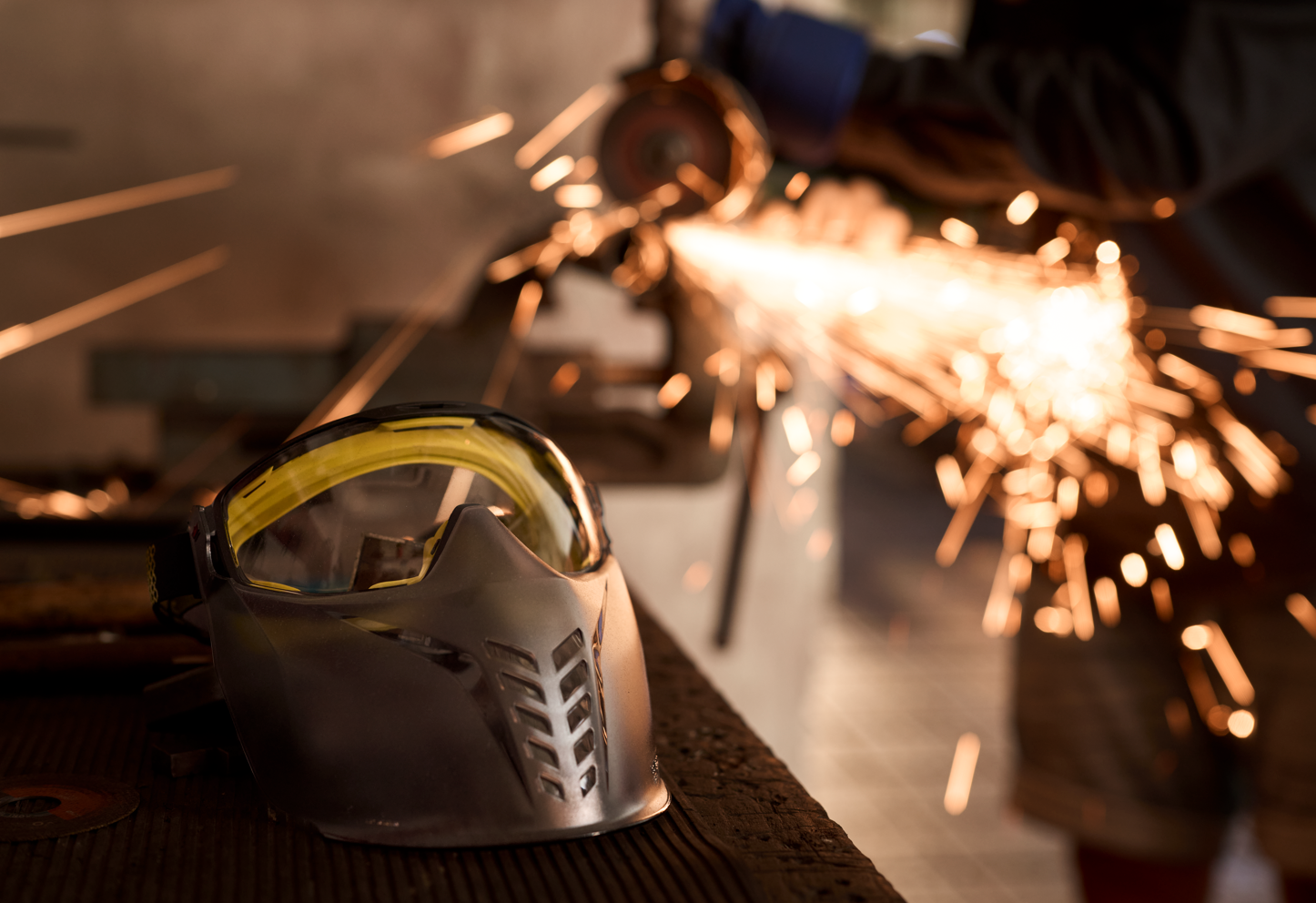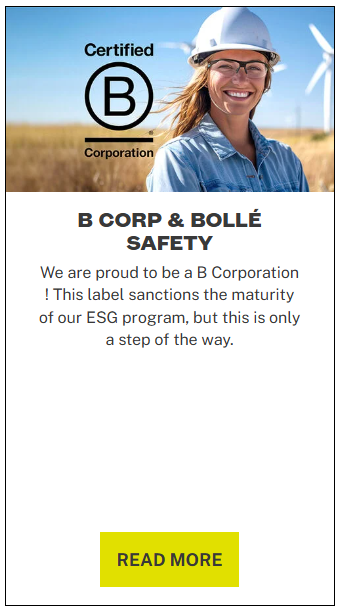EN STANDARDS
managed by the CEN
(European Committee for Standardisation)
CEN/TC85 – Eye protective equipment
ISO STANDARDS
managed by the ISO
(International Organisation for Standardisation)
TC94 – Personal protective equipment
SC6 – Eye and face protection
SINCE 2022
EN ISO
Decision to align EN work with ISO for eye protection
No more EN standards developed, gradually replaced by EN ISO
ARTIFICIAL AND
NATURAL RADIATION
EN17O
ULTRAVIOLET FILTERS
UV protection ranges :
210-313 nm - 313-365 nm
EN171
INFRARED FILTERS
IR protection ranges :
EN172
SUN GLARE FILTERS FOR INDUSTRIAL USE
WELDING WORK
EN169
WELDING FILTERS
Welding filter protection ranges:
210-313 nm - 313-365 nm -
365-380 nm - 380-480 nm - 780-1400 nm
EN175
WELDING EYEWEAR AND EQUIPMENT
Ensures that the eyes and face are protected from
harmful light during welding activities.
EN379
AUTOMATIC WELDING FILTERS
Ensures that the filters effectively react to the start of the welding arc: automatic adjustment of light transmission.
LASER WORK
EN207
LASER PROTECTION
Protective eyewear against accidental exposure to lasers. Indicates what this eyewear must do, how to test it and the required markings.
EN208
LASER ADJUSTMENT
Requirements for eyewear in tasks where potentially-harmful laser radiation is involved, ensuring that they comply with safety guidelines.
EN ISO 16321
EYE AND FACE PROTECTION FOR OCCUPATIONAL USE
EN ISO 16321-1
General requirements for eye protectors
- Includes optical, mechanical and optional requirements
- Includes UV, IR and Solar filters in the basic standard (no more separate standards)
Directly replaces EN166 / EN170 / EN171 / EN172 standards
EN ISO 16321-2
Additional requirements
for welding
- Includes filtration requirements for welding activities
- Includes requirements for automatic welding filters
Directly replaces EN169 / EN379 standards
EN ISO 16321-3
Additional requirements for
mesh protectors

SCOPE AND LIMITS OF EN ISO 16321-1 STANDARDS
The following applications are excluded :
- Protection against laser radiation
- Face protection for live operation and protection against electric arcs
Removal of marking 8 and necessity for CAT3 PPE for protection against electric arcs - Protection against ionised radiation (X-ray-type radiation)
- Protection for sports use (ISO 18527)
THE EN ISO 16321 STANDARDS ARE ADOPTED AS HARMONISED STANDARDS
- Harmonised standard = presumption of EC conformity (regulation 2016/425)
- General requirements for product certification
As of 11/11/2025
Replaced EN standards become obsolete
- New products can no longer be certified according to EN166
- EN certificates can no longer be amended
- Products with valid EC certificates can still be sold


EN ISO 16321-1
AMENDMENT AND TIMETABLE
Why was an amendment required?
The initially-published version included clauses that were not suitable for protective eyewear (more than 80% of products on the market failed to meet the requirements of the original EN ISO 16321-1 standard)
What has been updated?
The modifications mainly address lateral protection zones (see details). Other minor adjustments have been made at the same time
When does this amendment come into force?
The ISO 16321-1 amendment was published in July 2024 (source: ISO TC94/SC6 website).
The timeframe for the extension of EN ISO 16321-1:2022/A1:2025 : date of publication for 2025-09-30
COMPARISON OF REQUIREMENTS
BETWEEN EN 166 AND ISO 16321 STANDARDS
PROTECTION
ZONES
- EN166 : 1 protection zone in the standard
- EN ISO 16321-1 : 4 protection zones in the standard and 3 sizes (S,M,L)
OPTICAL
TESTS
EN ISO 16321 - 1 markings:
- 1 only (optical clarity)
- U for Ultraviolet
- R for infraRed
- G for solar Glare
- W for Welding
- K/N for coating tests
MECHANICAL
TESTS
EN ISO 16321 - 1 markings:
- HM for Hight Mass
- C, D, E for low, medium, high velocity impact
- T for extreme Temperature
- K/N for coating tests
- 3 for droplets
- 4/5 for particles and gases
- Protection against liquid projections (6)
- Resistance to radiant heat (7)
- 9 for Molten metals and hot solids
- Chemical resistance (CH)



